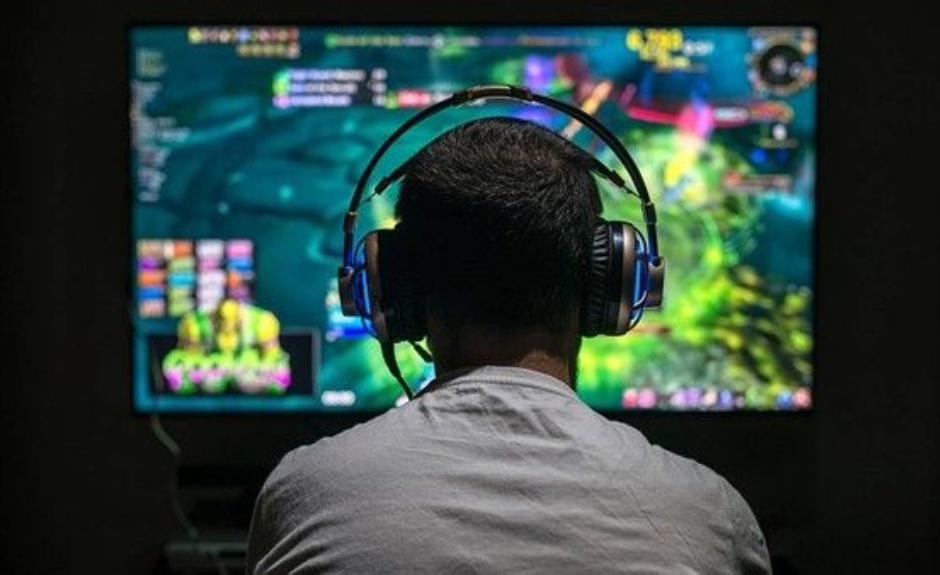Navigating Gaming with our Children

The day my brand new Commodore 64 computer arrived was a big moment for me; almost as big as the day I received my vinyl of Paul Simon’s Graceland!
I was finally able to play computer games at home, and I did not need to ride my bicycle all the way into town and spend my hard-earned pocket money at the local arcade (Galaga and Double Dragon were all the rage). I can clearly remember inserting cassette tapes into the player, and then going outside to play for half an hour while the game I wanted to play loaded. This was no quick fix!
So much has changed. Our children now have huge amounts of gaming fire-power at their finger-tips all the time, and teaching them – and ourselves – to manage this is quite a challenge. At last Saturday’s Wellbeing Matters ‘Live’ presentation, we spent a fair amount of time speaking about gaming and some of the considerations we should bear in mind when chatting to our children about this aspect of their childhood experience.
It's essential for us to recognise the appeal of gaming for our children. Video games offer engaging, immersive experiences that can stimulate creativity, problem-solving skills, and strategic thinking, and many games also provide opportunities for social interaction and collaboration, which can be especially valuable. At the same time, it's important to acknowledge the potential drawbacks of excessive gaming. Prolonged screen time can lead to physical inactivity, reduced outdoor play, and disrupted sleep patterns. Additionally, some games may contain content that is not age-appropriate or may promote aggressive behaviour.
One of the key strategies for us as parents is to establish clear boundaries around gaming. Setting limits on screen time and ensuring a healthy balance between gaming and other activities is crucial. The American Academy of Paediatrics recommends no more than one hour per day of screen time for children aged 2 to 5, and consistent limits for older children and adolescents. It’s often a struggle, but it is helpful to work with our children to establish a family media plan that outlines guidelines for screen time, device-free zones, and appropriate content.
When it comes to which games our children should or should not be playing, we should pay close attention to the content and age ratings of the games in question. Understanding the Entertainment Software Rating Board (ESRB) ratings is essential for making informed decisions about which games are suitable for children. Games with an age-appropriate rating can offer safe and enjoyable experiences for younger children, while ensuring that they are not exposed to inappropriate content.
Instead of viewing gaming as a solitary activity, it may be helpful to embrace it as an opportunity for family engagement. Playing games together with our children allows for quality bonding time and opens up avenues for conversations about game content, strategies, and the responsible use of technology. It also provides us oldies with insight into our children's gaming preferences and habits.
Most gaming consoles and devices offer parental control features that allow parents to manage and monitor their children's gaming activities. These controls can include setting time limits, restricting access to certain games or online interactions, and monitoring usage statistics. Making use of these features can help us ensure that our children's gaming experiences are safe and appropriate.
While gaming can offer many benefits, it's important for us to encourage our children to develop in a holistic manner. Balancing gaming with physical activities, hobbies, reading, and other non-screen related pursuits is essential for their overall well-being. We can help our children discover a variety of interests and talents beyond gaming, fostering a well-rounded approach to personal growth and development.
It is crucial for us as parents and teachers to educate our children about online safety. These conversations may be uncomfortable at times, but it is very important to keep the channels of communication open in this area. Discussing topics such as not sharing personal information, being cautious about interacting with strangers, and reporting any inappropriate behaviour or content can help ensure a safe and positive online gaming experience. Much time is spent on this topic in PSHEe at school, and it is something that comes up in conversation often. It is quite eye-opening at times, and a number of children have had some negative experiences online that they may not speak about openly.
Having said this, many games offer educational benefits, from promoting problem-solving and critical thinking, to encouraging creativity and strategic planning. We can explore educational games that align with the academic curriculum or offer valuable learning experiences. Gaming can be harnessed as a tool for enhancing cognitive skills and academic engagement when approached thoughtfully.
Ultimately, maintaining open lines of communication with children about their gaming experiences is essential. Encouraging them to share their thoughts and feelings about the games they play, and being receptive to their perspectives, can help us address any concerns and guide them towards responsible gaming habits.
The world of gaming holds both opportunities and challenges, and with thoughtful guidance and active involvement, we can ensure that gaming remains a positive and enriching aspect of our children's lives.
Craig Cuyler
Director of Wellbeing/Head of PSHEe/
Deputy DSL/ Assistant Housemaster









